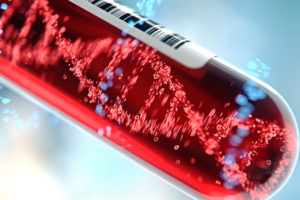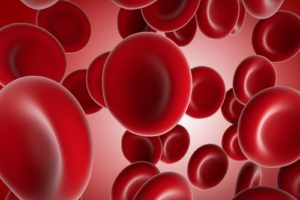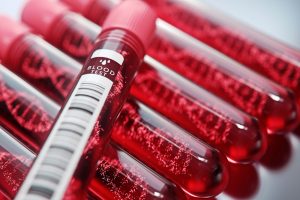Bay Biosciences provides high quality, clinical grade bio-samples, cryogenically preserved tissue, chorionic villus sampling, amniotic fluid, sera (serum), plasma and peripheral blood mononuclear cells (PBMC) biofluid specimens from patients diagnosed with Thalassemia Disorder.
The sera (serum), plasma and peripheral blood mononuclear cells (PBMC) biofluid samples are processed from patient’s peripheral whole-blood using customized processing protocols. The Thalassemia Disorder bio-specimens are collected from unique patients diagnosed with Thalassemia Disorder and are provided to a valued pharmaceutical customer for translational research, genomics, proteomics and biomarker research, drug discovery and development.

Thalassemia Disorder Overview
Thalassemia’s are inherited blood disorders that causes the body to have less hemoglobin production than normal. Hemoglobin enables red blood cells to carry oxygen. Symptoms depend on the type and can vary from mild to severe anemia (low red blood cells hemoglobin) Thalassemia can cause anemia, leaving patients fatigued and having pale skin. There may also be bone problems, an enlarged spleen, pale yellowish skin and dark urine, it may also cause slow growth in kids. Patients with mild thalassemia might not need treatment, but more severe forms might require regular blood transfusions.
Thalassemia’s are genetic disorders inherited from a patient’s parents. There are two main types of Thalassemia’s, alpha thalassemia and beta thalassemia. The severity of alpha and beta thalassemia depends on how many of the four genes for alpha globin or two genes for beta globin are missing. Diagnosis is typically by blood tests including a complete blood count (CBC), special hemoglobin tests, and genetic tests, Chorionic villus tests, Amniocentesis test maybe performed during pregnancy. Diagnosis may also occur before birth through parental testing.
Thalassemia Disorder Symptoms
There are several types of thalassemia, the signs and symptoms depend on the type and severity of the disease condition.
Thalassemia Signs and Symptoms can include:
- Fatigue
- Weakness
- Pale or yellowish skin
- Facial bone deformities
- Slow growth
- Abdominal swelling
- Dark urine
Some babies show signs and symptoms of thalassemia at birth; others develop them during the first two years of life. Some patients who have only one affected hemoglobin gene don’t have thalassemia symptoms.
Thalassemia Disorder Causes
Thalassemia is caused by mutations in the DNA of cells that make hemoglobin, which is the substance in red blood cells that carries oxygen throughout the body. The mutations associated with thalassemia are passed from parents to children.
Hemoglobin molecules are made of chains called Alpha and Beta chains that can be affected by mutations. In thalassemia, the production of either the Alpha or Beta chains are reduced, resulting in either Alpha-Thalassemia or Beta-Thalassemia.
In Alpha-Thalassemia, the severity of thalassemia depends on the number of gene mutations inherited from the parents. The more mutated genes, the more severe the thalassemia.
In Beta-Thalassemia, the severity of thalassemia depends on which part of the hemoglobin molecule is affected.
Alpha-Thalassemia
Four genes are involved in making the alpha hemoglobin chain. You get two from each of your parents. If you inherit:
- One mutated gene, you’ll have no signs or symptoms of thalassemia. But you are a carrier of the disease and can pass it on to your children.
- Two mutated genes, your thalassemia signs and symptoms will be mild. This condition might be called alpha-thalassemia trait.
- Three mutated genes, your signs and symptoms will be moderate to severe.
Inheriting four mutated genes is rare and usually results in stillbirth. Babies born with this condition often die shortly after birth or require lifelong transfusion therapy. In rare cases, a child born with this condition can be treated with transfusions and a stem cell transplant.
Beta-Thalassemia
Two genes are involved in making the beta hemoglobin chain, you get one from each of your parents.
If you inherit:
- One mutated gene, you’ll have mild signs and symptoms. This condition is called thalassemia minor or beta-thalassemia.
- Two mutated genes, your signs and symptoms will be moderate to severe. This condition is called thalassemia major, or Cooley anemia. Babies born with two defective beta hemoglobin genes usually are healthy at birth but develop signs and symptoms within the first two years of life. A milder form, called thalassemia intermedia, also can result from two mutated genes.

Thalassemia Disorder Risk Factors
Factors that increase the risk of thalassemia include:
- Family history of thalassemia- Thalassemia is passed from parents to children through mutated hemoglobin genes.
- Certain ancestry-Thalassemia occurs most often in African Americans and in people of Mediterranean and Southeast Asian descent.
Thalassemia Disorder Complications
Possible complications of moderate to severe thalassemia include:
- Iron overload- Patients with thalassemia can get too much iron in their bodies, either from the disease or from frequent blood transfusions. Too much iron can result in damage to the heart, liver and endocrine system, which includes hormone-producing glands that regulate processes throughout the body.
- Infection– Patients with thalassemia have an increased risk of infection. This is especially true if they had their spleen removed.
In cases of severe thalassemia, the following complications can occur:
- Bone Deformities: Thalassemia can make the bone marrow expand, which causes the bones to widen. This can result in abnormal bone structure, especially in the face and skull. Bone marrow expansion also makes bones thin and brittle, increasing the chance of broken bones.
- Enlarged Spleen: The spleen helps the body fight infection and filter unwanted material, such as old or damaged blood cells. Thalassemia is often accompanied by the destruction of a large number of red blood cells. This causes the spleen to enlarge and work harder than normal. An enlarged spleen can make anemia worse, and it can reduce the life of transfused red blood cells. If the spleen grows too big, your doctor might suggest surgery to remove it.
- Slowed Growth Rates: Anemia can both slow a child’s growth and delay puberty.
- Heart Problems: Congestive heart failure and abnormal heart rhythms can be associated with severe thalassemia disease.

Detailed clinical data, CT, MRI scans, cerebrospinal fluid/blood analysis, chorionic villus sampling and amniocentesis test results, elevated biomarker levels, genetic and metabolic information, histopathological findings, annotations associated with the Thalassemia Disorder patient’s specimens is provided to a valued customer for drug discover, development and research. The Thalassemia Disorder sera (serum), plasma and peripheral blood mononuclear cells (PBMC) biofluid samples are processed from patients peripheral whole-blood using customized collection and processing protocols provided by the researcher.
Bay Biosciences is a global leader in providing researchers with high quality, clinical grade, fully characterized human tissue samples, bio-specimens and human bio-fluid collections from cancer (tumor) tissue, cancer sera (serum), cancer plasma, cancer PBMC and human tissue samples from most other therapeutic areas and diseases.
Bay Biosciences maintains and manages it’s own bio-repository, human tissue bank (biobank) consisting of thousands of diseased samples (specimens) and from normal healthy donors available in all formats and types. Our biobank procures and stores fully consented, deidentified and institutional review boards (IRB) approved human tissue samples and matched controls.
All our human human tissue collections, human specimens and human bio-fluids are provided with detailed samples associated patient’s clinical data. This critical patient’s clinical data includes information relating to their past and current disease, treatment history, lifestyle choices, biomarkers and genetic information. Patient’s data is extremely valuable for researchers and is used to help identify new effective treatments (drug discovery & development) in oncology, other therapeutic areas and diseases. This clinical information is critical to demonstrate their impact, monitor the safety of medicines, testing & diagnostics, and generate new knowledge about the causes of disease and illness.
Bay Biosciences banks wide variety of human tissue samples and biological samples including cryogenically preserved -80°C, fresh, fresh frozen tissue samples, tumor tissue samples, FFPE’s, tissue slides, with matching human bio-fluids, whole blood and blood derived products such as serum, plasma and PBMC’s.
Bay Biosciences is a global leader in collecting and providing human tissue samples according to the researchers specified requirements and customized, tailor made collection protocols. Please contact us anytime to discuss your special research projects and customized human tissue sample requirements.
Bay Biosciences provides human tissue samples (human specimens) from diseased and normal healthy donors; including peripheral whole-blood, amniotic fluid, bronchoalveolar lavage fluid (BAL), sputum, pleural effusion, cerebrospinal fluid (CSF), serum (sera), plasma, peripheral blood mononuclear cells (PBMC’s), saliva, Buffy coat, urine, stool samples, aqueous humor, vitreous humor, kidney stones, renal calculi, nephrolithiasis, urolithiasis and other bodily fluids from most diseases including cancer. We can also procure most human bio-specimens and can do special collections and requests of human samples that are difficult to find. All our human tissue samples are procured through IRB approved clinical protocols and procedures.
In addition to the standard processing protocols Bay Biosciences can also provide human plasma, serum, PBMC bio-fluid samples using custom processing protocols, you can buy donor specific sample collections in higher volumes and specified sample aliquoting from us.
Bay Biosciences also provides human samples from normal healthy donors, volunteers, for controls and clinical research, contact us Now.
日本のお客様は、ベイバイオサイエンスジャパンBay Biosciences Japan またはhttp://baybiosciences-jp.com/contact/までご連絡ください。
